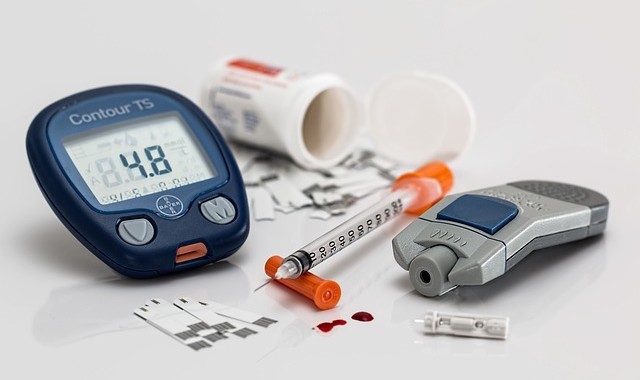Busting the Top 5 Myths about Diabetes
Diabetes is a condition where blood glucose levels are abnormally high for prolonged periods of time. Symptoms include frequent urination, excessive thirst and hunger, numbness of feet and impact on vision. Diabetes is one of the most common diseases worldwide but if diagnosed and treated on time it could be well controlled and the patients can lead a healthy lifestyle.
This common disease is also surrounded by various myths which have little to no scientific proof; however, the patients deal with these statements every now and then, often believing them. Let’s bust the top 5 myths!
Myth # 1: Fat People Get Diabetes
While weight is one of the risk factors for diabetic condition, it is far from the only one. Genes play a crucial role in affecting the likelihood of a person being diabetic too, among other risk factors. Many people with type 2 diabetes are of normal weight and many overweight individuals never develop diabetes at all.
Myth # 2: No More Exercise
In reality, diabetes requires a regular exercise routine and diet. If a diabetic patient is on insulin or other medications that increase insulin production in the body, regular exercise and proper diet is essential to balance the insulin. Many type 2 medications don’t cause low sugar at all despite exercise, plus it is essential to be on a regular exercise regime to maintain body weight and control diabetes.
Myth # 3: The Body Ceases to Produce Insulin
Not necessarily. This, however, is true in case of type 1 diabetes where the pancreas completely stop producing insulin. In type 2 diabetes, this is not the case. The pancreas produces enough insulin for the body but the cells do not absorb it, resulting in higher blood sugar level. Insulin does not work properly and glucose produced by food is not absorbed by the cells, which affects various functions of human body and requires injections. This does not mean there is no natural insulin production at all though.
Myth # 4: Eating Sugar Causes Sugar (Diabetes)
Sugar consumption alone does not cause diabetes. But if the individuals are already at a risk of developing diabetes, consuming too much sugar can trigger the disease. Sugary items do not directly cause diabetes but for sure they cause obesity, and obesity is one of the major causes of diabetes. Some other high calorie food items consumed by individuals also contribute to higher chances of developing diabetic condition. Sugar no doubt is bad for diabetes since it raises blood sugar levels but so are various other foods and drinks that trigger similar reactions in the body.
Myth # 5: You Get a ‘Feeling’ About Your Blood Sugar Levels
You do get to know how your body functions and experience certain changes but this is not one of them for sure. You can’t really predict blood sugar levels without an accurate test proving it imbalanced (or balanced). Feeling shaky or light headed may be caused by low blood pressure and not low sugar levels. Constant urination may not necessarily mean that you have high blood glucose level; it may mean you have a bladder infection and you fail to get treated in time.
Update your knowledge of diabetes and save a lot of costs incurred on the expensive medication by registering for patient assistance which provides prescription assistance to registered individuals for easy accessibility of medicine and insulin supplies to maintain a healthy lifestyle.







